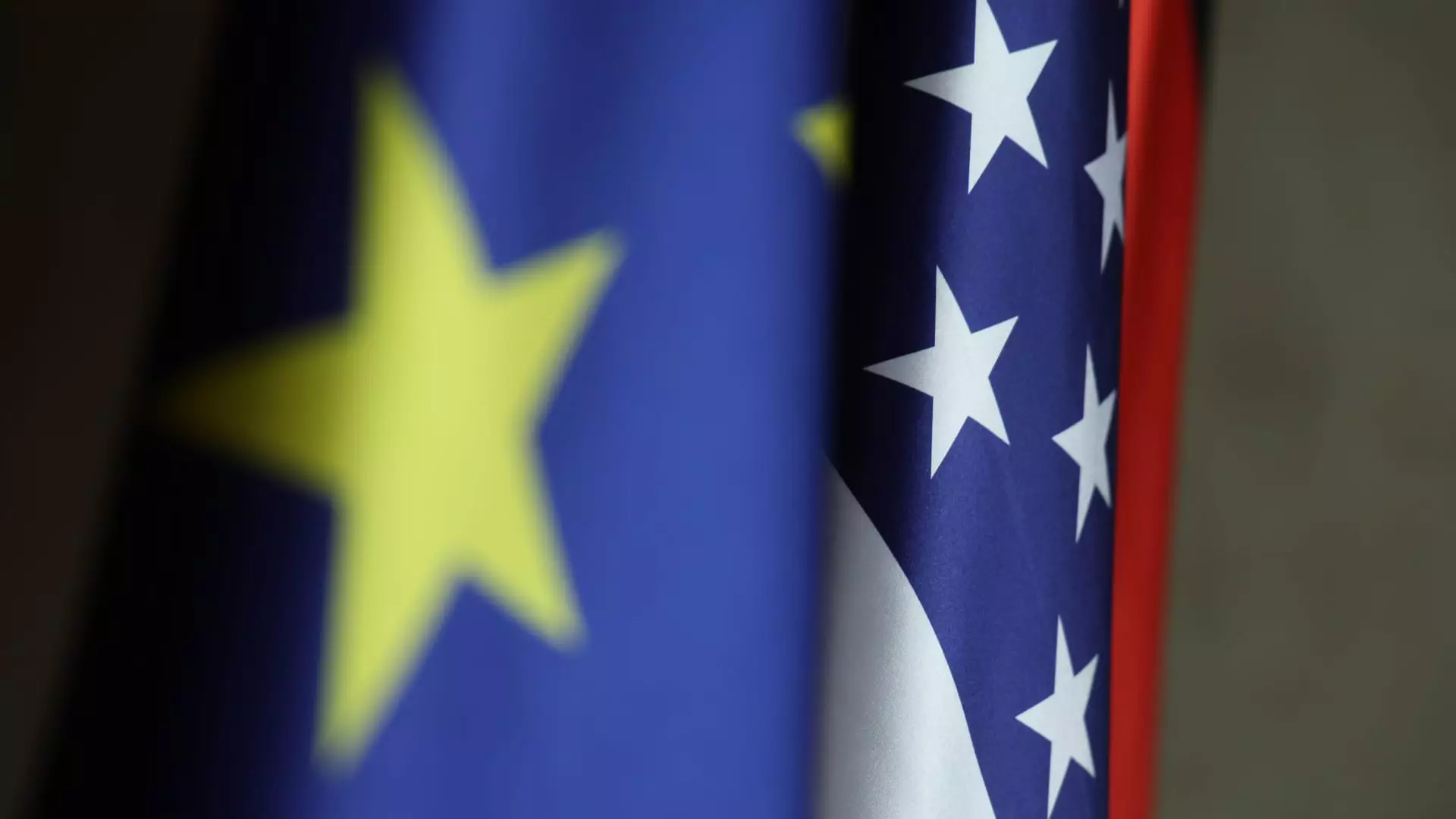The looming deadline of July 9 for U.S.-EU trade negotiations epitomizes the precariousness of modern international diplomacy. While deadlines are traditionally viewed as catalysts for decisive action, the unpredictable tendencies of policymakers—particularly President Trump’s notorious penchant for shifting targets—render such dates almost symbolic rather than practical. This creates a paradox where the urgency is palpable but the commitment uncertain. The European Union’s expectation of an “agreement in principle” rather than a full-fledged deal underscores a pragmatic recognition of the realities but also reveals the hesitancy that plagues transatlantic relations. It is astonishing how political brinkmanship, often driven by domestic pressures or electoral calculations, continues to influence negotiations that fundamentally impact economic stability.
This uncertain atmosphere raises suspicions about the sincerity of these diplomatic overtures. Is Brussels genuinely committed to reaching a fair accord or is it merely maneuvering to avoid tariffs that could cripple its industries? When one considers the history of overly ambitious deadlines that are repeatedly missed or delayed, it becomes clear that such negotiations are less about concrete agreements and more about managing perceptions. The EU’s cautious optimism—settling for an “agreement in principle”—reflects a deep-seated realism but also hints at a vulnerability that external actors could exploit. It is a fragile dance that demands transparency and genuine commitment, qualities often in short supply on both sides of the Atlantic.
The OPEC Circus and the High-Stakes Energy Game
Moving from diplomatic gridlock to the volatile energy arena, the upcoming OPEC Seminar in Vienna reveals a different kind of power play. Unlike the tentative and often inconclusive trade talks, this gathering demonstrates how energy policy is at once strategically vital and geopolitically fraught. High-profile energy companies like BP and Shell will be in the spotlight, and their presence signals the industry’s concern about future oil supply and prices in an era of climate uncertainty and geopolitical tensions. This meeting is not merely about supply figures; it’s an arena where geopolitical ambitions, economic sustainability, and corporate interests collide.
Having observed these meetings firsthand, it’s evident that the traditional OPEC image of tight-lipped ministers has, in recent years, given way to a more transparent, albeit still strategic, dialogue. The rumors of a potential output hike amid turbulent crude prices only add to the tension. This deliberation underscores how vulnerable the global economy is to energy fluctuations. Oil producers, especially non-OPEC nations like Russia, use these platforms to assert influence over global energy markets—highlighting how a handful of countries wield disproportionate control over a commodity that fuels the world’s economy.
The participation of major CEOs introduces another layer of complexity. Their strategic discussions hint at possible mergers, takeovers, or shifts in market dominance. This not only affects energy prices but also the broader geopolitical landscape, raising questions about how long governmental and corporate interests will continue to coexist before tension boils over into larger conflicts. The Vienna meeting, thus, stands as a microcosm of international power dynamics—where economic interests intersect with geopolitical strategies—and demonstrates their capacity to cause ripple effects far beyond the oil sector.
Critical Reflection: The Illusion of Control in an Uncertain World
At the heart of these negotiations lies a fundamental reckoning: the illusion of control. Both the U.S.-EU trade talks and OPEC’s energy discussions expose how political and economic elites navigate the twin realities of uncertainty and necessity. While policymakers project confidence, behind the scenes they grapple with conflicting interests, domestic pressures, and unpredictable global shifts. It’s increasingly evident that deadlines are more performative than binding, serving as rhetorical devices rather than catalysts for meaningful change.
In a world beset by rapid geopolitical shifts, climate crises, and economic upheavals, placing such faith in drawn deadlines seems naive at best. The superficiality of “agreements in principle” and the strategic posturing seen at Vienna are indications of a deeper truth: the global order remains inherently fragile, susceptible to manipulation and delay. It calls into question whether genuine cooperation is even possible when vested interests dominate the agenda, and whether the appearance of progress is simply a veneer masking deeper discord. The challenge for centrist liberal perspectives is to advocate for pragmatic engagement that respects sovereignty and economic stability without being duped by the illusion of quick fixes or total agreement.

